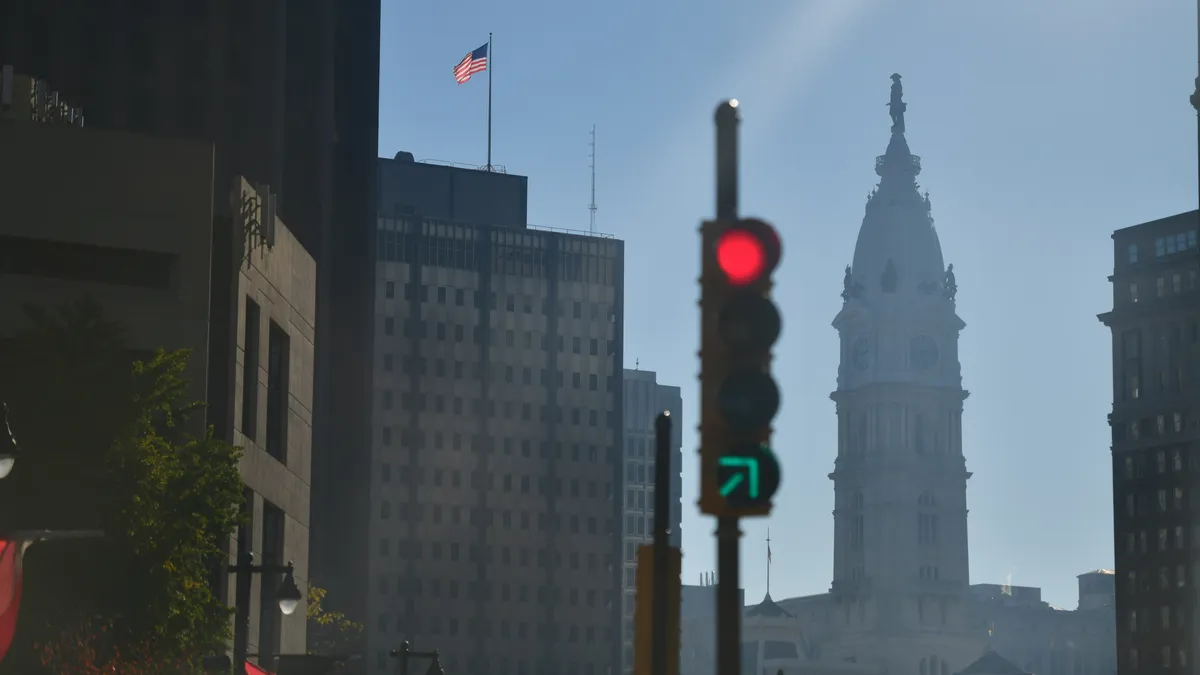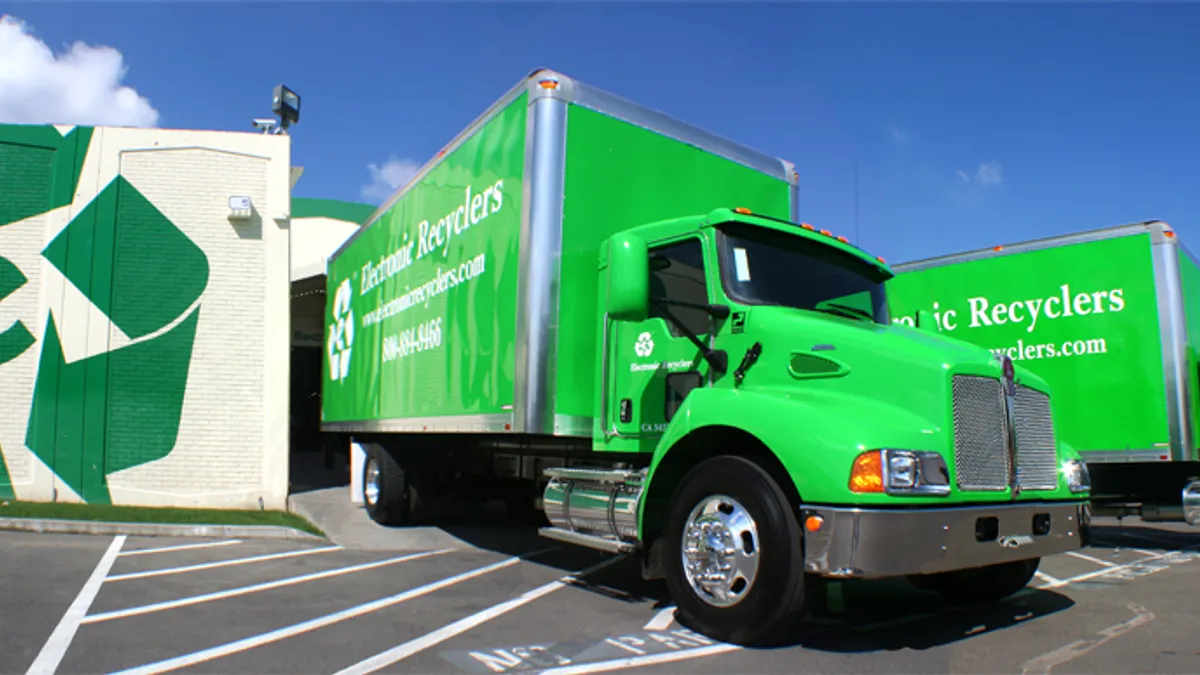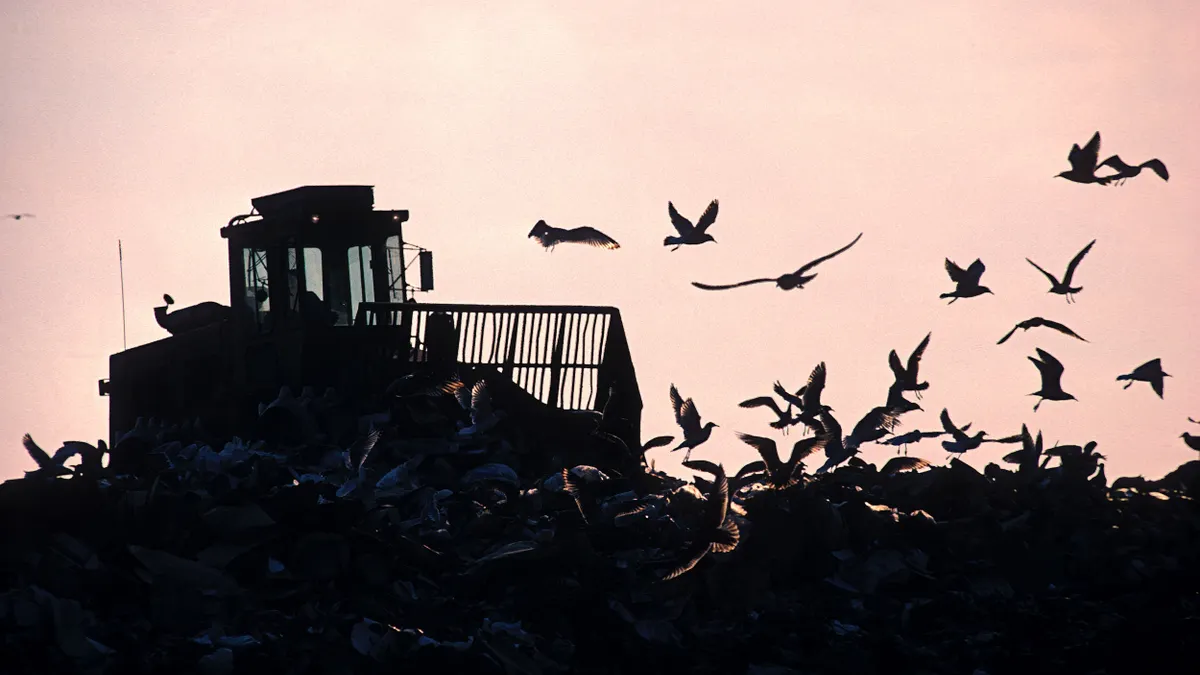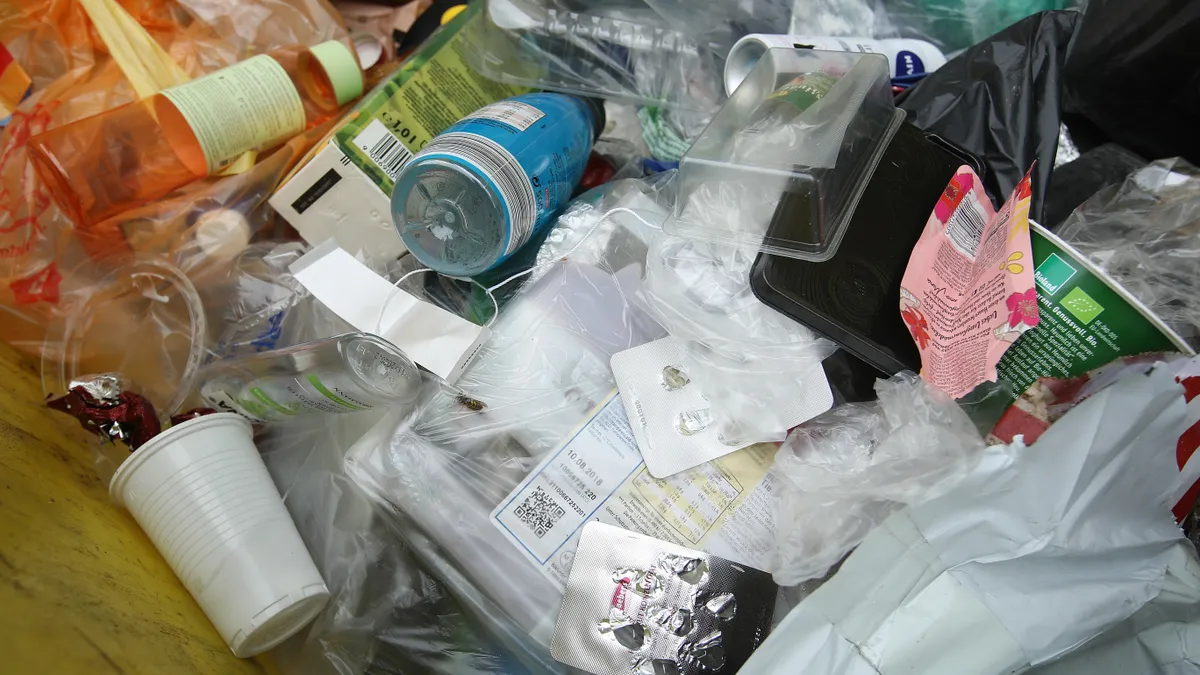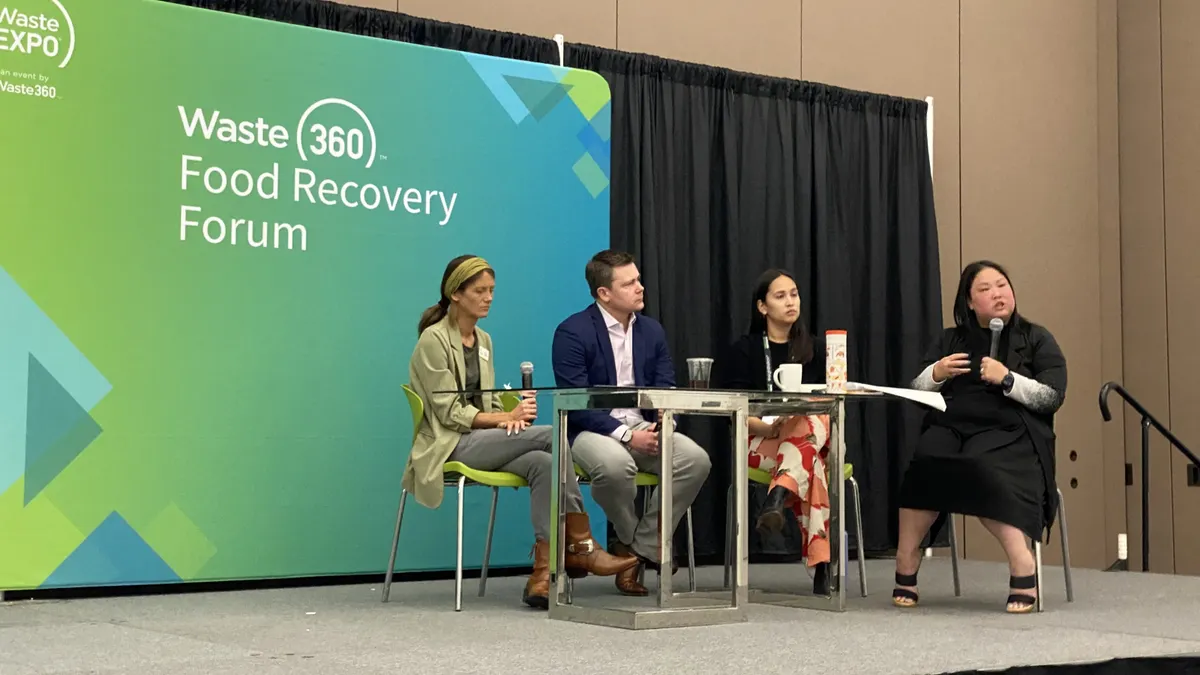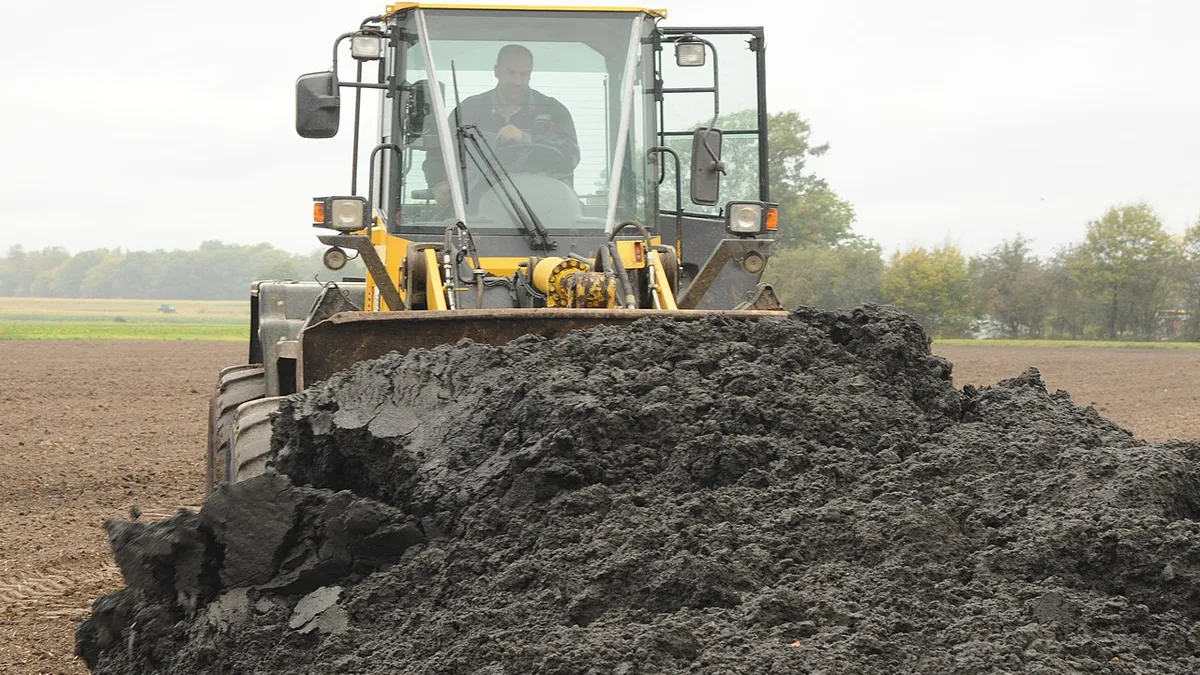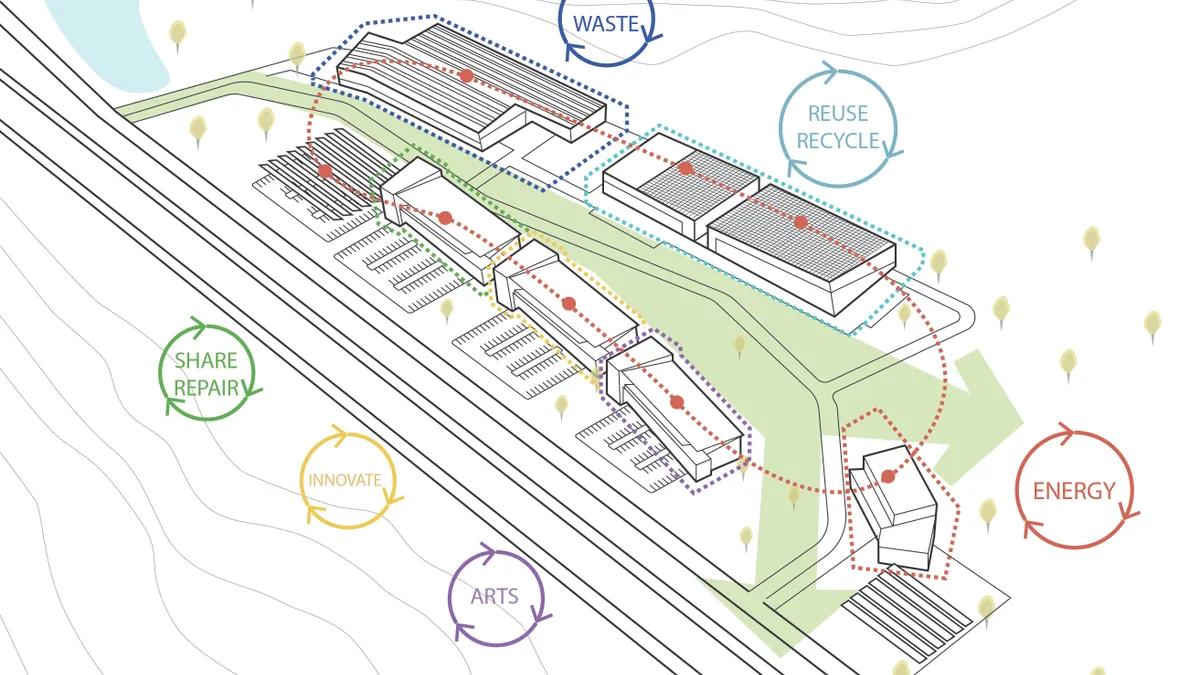Whoever wins the Democratic primary in Philadelphia’s mayoral election today is largely expected to be the city’s next leader in 2024 and inherit a unique opportunity to overhaul its waste policy.
Almost a dozen candidates still crowd the field, but polls show four of them — Allan Domb, Helen Gym, Cherelle Parker and Rebecca Rhynhart in a particularly tight race. Their waste platforms span from limited community pick-up proposals to reviving a stalled vision for achieving zero waste by 2035.
The winner of the Democratic primary will head to a general election on Nov. 7, in which they are favored to prevail considering the last Republican mayor of Philadelphia was elected in 1941. Until the next mayor takes office in January 2024, the city’s waste efforts will by run the administration of Mayor Jim Kenney, who some environmental activists feel is effectively waiting out the clock.
“He retired on the job,” said Maurice Sampson, Clear Water Action’s Eastern Pennsylvania director and a recycling program administrator for the city in the 1980s. “He just stopped responding, stopped moving on anything that was happening.”
Setbacks and opportunities
The result is a series of recycling policies that many feel are stuck in place. Under Michael Nutter, the city’s mayor from 2008-2016, the curbside recycling pick-up program was expanded, as was waste education. Kenney briefly advanced efforts by establishing the Zero Waste and Litter Cabinet and a litter index in late 2016, before later scaling back those policies.
The city’s Department of Streets could not be reached for comment prior to publication.
The COVID-19 pandemic negatively affected Philadelphia’s waste and recycling system in a way that still persists three years later. First, infections of Philadelphia Department of Streets staff undercut garbage and recycling collection. Then, pandemic budget cuts shuttered key waste reduction efforts in the city, specifically the Zero Waste and Litter Cabinet in May 2020.
“By July of 2020 our whole trash system collapses,” said Nic Esposito, director of policy and engagement at Circular Philadelphia, and the city’s former zero waste and litter director. “Trash trucks mixed with recycling because there were not enough people on the routes.”
During the pandemic, the city’s recycling rate dropped from close to 20% to less than 10%, along with a similar decline in the tonnage of recyclables collected.
“The issue of circularity and waste has to be part of this race,” said Esposito. “Especially given all the challenges we’re facing in Philadelphia right now continually around terrible recycling, illegal dumping, litter and so on and so forth.”
With this in mind, a sustainability coalition called Waste Free Philly drafted waste policy proposals to act as blueprints for the next mayor to revive momentum. Collectively, they are called the “The 5-Point Mayoral Agenda for a Clean and Waste-Free Future for Philadelphia.” The coalition includes a slate of environmental organizations such as Circular Philadelphia, Clean Water Action and Clean Air Council.
The coalition’s suggestion for the creation of a Mayor’s Office of Zero Waste, and new work to reach a goal of zero waste by 2035, is central to the WFP proposal. Other WFP aspirations include the appointment of a deputy Streets commissioner for zero waste, citywide street cleaning, crackdowns on illegal dumping and rekindling public trust. Esposito calls it “the playbook to get us back to that baseline.”
Rebecca Rhynhart, who worked as the city comptroller from 2018 until last October, has pledged to adopt all five of WFP’s proposals. “Sustainability and the issue of waste is a major issue,” said Kellan White, Rhynhart’s campaign manager. “We need to urgently address climate change — in the commonwealth, country and world. The amount of waste that Philadelphians create is a contributing factor to that.”
As outlined by WFP, a zero waste cabinet would be created under a Rhynhart administration to coordinate sustainability efforts across the city’s dozens of departments. Rhynhart could also divvy up the Department of Streets, which is currently a catch-all city bureau tasked with wide-ranging duties such as waste collection and road maintenance.
“It’s better to have someone leading sanitation if they’re an expert in sanitation,” White said, “not an expert in transportation.” That new city bureau could also conduct citywide street cleaning services.
The other leading candidates could not be reached for comment, but prior statements offer a sense of their stances on the issue.
Helen Gym, a former city council member, has also advanced ambitious waste policies and committed to WFP’s tenets. During a candidate forum put on by the Green Living Plan — a consortium of environmental groups with its own set of proposed governance policies, which also include WFP’s — she pledged to establish a sanitation and waste department separate from Streets.
Further, Gym emphasized equity as a guiding light for deciding on neighborhood waste pickup rates. As an example, she said a quiet residential neighborhood might only need retrieval once per week, while areas with lots of vacant lots and construction could need more frequent truck routes. She also mentioned better education as a priority.
“I’m going to make sure that our public knows there are better ways in which we can distribute waste,” she said. For those who continue to dump illegally, Gym suggested enlisting detectives: “We need to find out who is doing the dumping, not just reporting the dumping.”
One candidate who sees another route to zero waste by 2035 is Allan Domb, a real estate developer and former at-large Philadelphia city council member. After WFP announced its policies in February, Domb’s campaign told Philly Voice that it would doggedly pursue zero waste without establishing a zero waste department in the city.
"[I]f every request for a new position was honored, we would have a totally unworkable, chaotic government," he answered in an email to the Voice, adding that good governance of existing department could pave the way to zero waste. Domb also signaled support for the other four tenets: appointing an experienced staff, aiming for a 2035 target, ending dumping by 2028 and regaining public trust.
The fourth candidate, former council member Cherelle Parker, has said less about waste than others. During an interview with Grid Magazine, she called for reviving the Zero Waste and Litter Cabinet and called herself a “firm believer in maintaining neighborhood streets that are free of debris.” When it comes to Parker’s other waste ideas, the state of city sidewalks emerged as a clear priority. Her website suggests the expansion of a program that hires local community members to clean sidewalks, and she proposed higher fines for illegal dumping as a city council member.
Looking ahead
And what about where the waste goes after it leaves the street? A large portion of it goes to a Covanta incinerator in nearby Chester, Pennsylvania, which environmental groups consider to be an undesirable option for multiple reasons. That contract is up for renewal this year by the Philadelphia City Council and has become another point of contention in the campaign.
In March, Mayor Kenney signed an executive order enabling the city’s Environmental Justice Advisory Commission to scrutinize city contracts — such as this one — for potential environmental concerns. Those concerns surfaced during a campaign debate when another candidate, Jeff Brown, drew ire with his response to a question over the contract: “Chester is Chester. I’m worried about Philadelphians and how their lives are.”
The council passed a resolution in late April that calls for hearings “to evaluate the environmental justice impacts of the city’s waste management practices and potential alternatives” to the existing contract. The Chester facility takes more than 400,000 tons of the city’s waste each year and the council will likely make a decision on this contract before the next mayor takes office.
Although candidates haven’t fully discussed their current stances, Gym, Domb and Parker were among the councilors that voted to approve Philadelphia’s contract with Covanta in 2019.
As for Rhynhart’s current position on the contract, White said “she hasn’t put much thought on that” and suggested the question of an incinerator contract was the wrong one to consider.
“Wherever you burn, the trash is still causing the same environmental harm to residents where that's happening,” he said. “We need to move urgently to a place where we no longer have as much weight that we need to put in an incinerator.”


